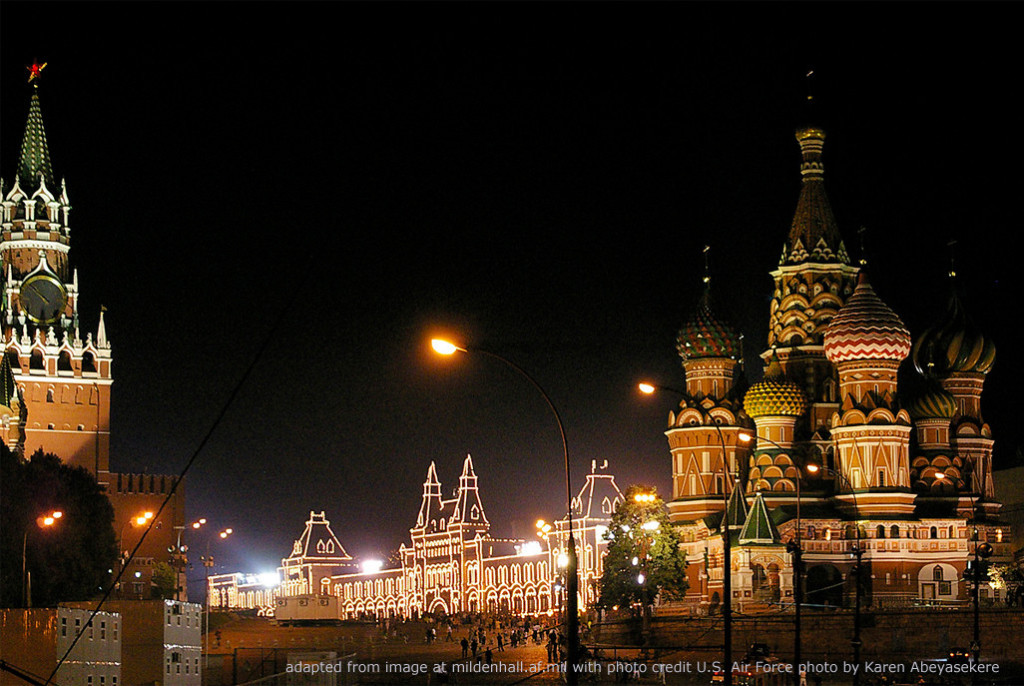Kremlin's Clumsy Intimidation of Weaker Domestic Opponents Raises Embarrassing Questions Over Why Kremlin, Itself, Feels Intimidated by Weaker Factions; Should Doubts Be Raised Over Level of Actual Kremlin Support
(SCW 6.2.21 - still awaiting editing) Repeated waves of Kremlin harassment and intimidation of domestic political opponents ultimately raise the question as to why the Kremlin would be willing to embarrass itself by telegraphing a low estimation of its own popular support or resilience.
Unless the question was merely psychological, centered around some potent combination of personal insecurity and a morbid desire for absolute submissiveness by others, the obvious implication is the Kremlin itself assesses its own level of popularity as significantly lower than is publicly claimed.
In terms of raw talent, the potentially most successful, capable figures in Russia sometimes seem to either flee, or to seek to satisfy themselves by trying their hand at finding a niche among the "powers that be," sometimes before later fleeing.
The would-be opposition seems to be somewhat limited in number, however notable some of their protests are. Perhaps by the Kremlin's own doing, as well as past opposition to business leaders becoming politicians, the opposition seems to become centered among information-oriented fact-finders essentially trying to function as investigative journalists while also setting down some kind of organizational template to get on ballots.
The apparent fear of oligarchs becoming politicians, combined with the shifting of oligarch status itself towards Kremlin cronies, seems to imply a fear of "doers" being allowed to apply their abilities to accomplish goals, and lead teams and organizations, to the role of government leaders offering a diverse array of leadership. That seems to be the case, regardless of whether such a diverse array could complement the Kremlin or bolster overall governmental stability by enhancing prosperity, or, perhaps more to the point, helping to overcome the abysmal failure by the Kremlin to diversify the Russian economy.
In short, the actual opposition that the Kremlin has found useful to permit seems to center around anti-corruption "bloggers" who also seem to value a token assortment of ballot-occupiers, some of whom do end up getting elected in relatively minor settings.
Perhaps it serves a Kremlin purpose to allow some weak form of opposition to persist, to create a false show of some form of political activity occurring in any otherwise stifled and stagnant, shallow authorarian reality. Even if periodic revelations of staggering corruption require some effort at public relations misdirection later as a cover-up, presumably much wealth and corruption still goes uncovered.
And bizarre claims of public support for Joseph Stalin, if even remotely true, would imply a serious societal pathology of some kind impacting some portion of the population, akin to a battered wife, in a traumatic altered state of mind, fantasizing that the wife-beater was a hero who only did what was wise and deserved.
In any event, against that limited backdrop of opposition, the obvious question is why the Kremlin would feel paranoid and threatened by such opposition activities as do occur.
Since the Kremlin undoubtedly is in the best position to know actual election results, and to gauge their actual support, the implication is that the Kremlin itself has a much lower estimation of its actual political standing, despite the relative dearth of realistic opposition.
Since the Kremlin, itself, seems paranoid over a lack of strong societal foundations for its governance, and therefore arguably conveys a lack of confidence in the abilities of its own in-house people, the real concern for outsiders should not simply be the various clumsy, if not oafish, Kremlin efforts to harass neighbors and violate agreements by stealing land.
A real concern is that the Kremlin perceives itself as standing on shaky ground, and seems to lack confidence in its own abilities and long-term standing.
And for observers who might seize upon various polling, including numbers by state-controlled pollsters, one must ask onself whether such observers are merely succumbing to the temptation to inflate their own sense of generating would-be work product, by crunching data, no matter how implausible the data's source. Even supposedly independent pollsters in Russia would have to contend with the fact that any person they communicate with would have to wonder who the pollsters were really affiliated with, or what kinds of surveillance might enable third parties to eavesdrop on their sharing of opinions.
Key Words: Russia, Russian Politics, Russian Opposition, Russian Elections, Russian Repression, Russian Government
